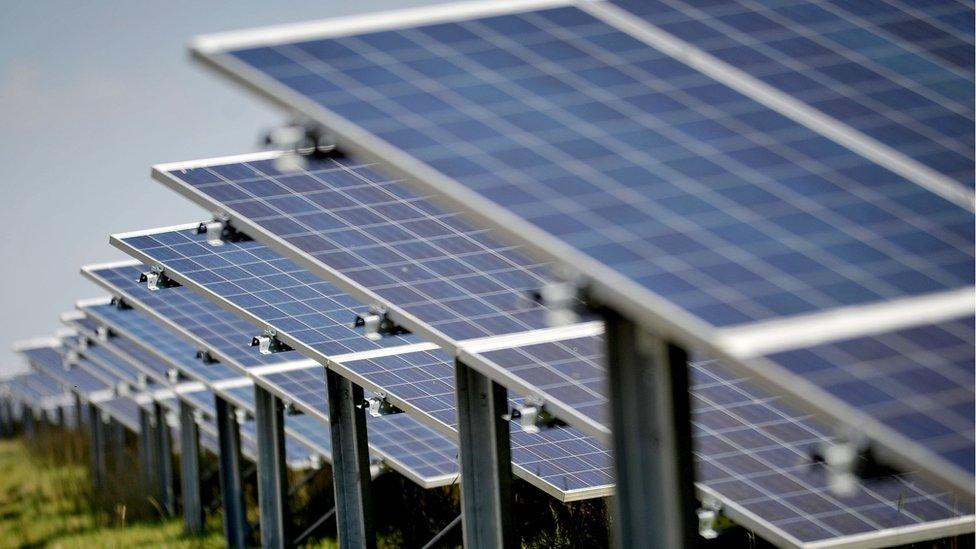Solar park in western Anglesey 'would ruin the area for tourism'
- Published
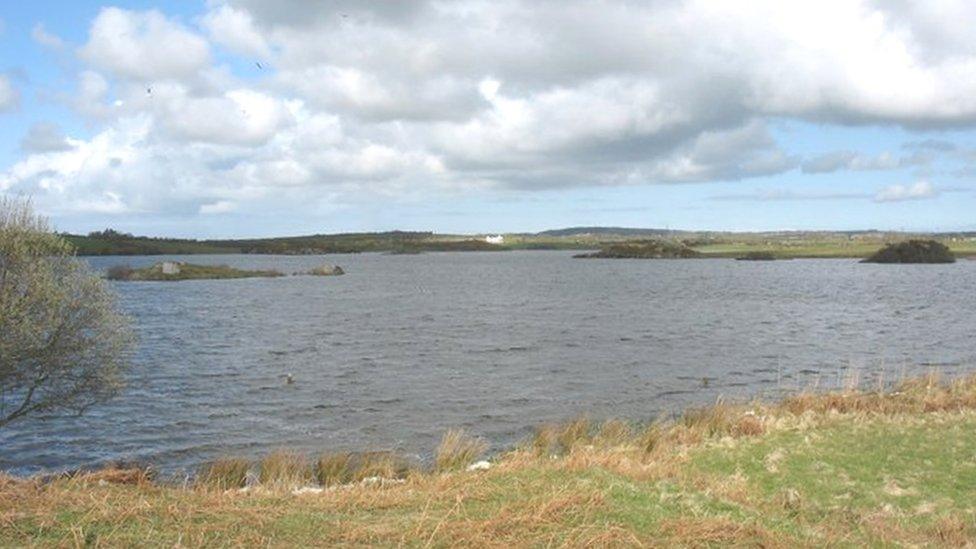
Llyn Traffwll is part of an RSPB nature reserve
A big solar park planned for western Anglesey would ruin the area for tourism and occupy good farming land, a campaign group has claimed.
Seven hundred people have signed a petition against Parc Solar Traffwll, near the RSPB Valley Wetlands reserve.
Backers say it will generate enough power for 12,250 homes and cut carbon emissions equivalent to 5,500 cars.
Due to the scheme's size, the decision lies with the Welsh Government rather than councillors.
With a capacity of 49.9MW, it is classed as a development of national significance, which applies to any scheme generating more than 10MW.
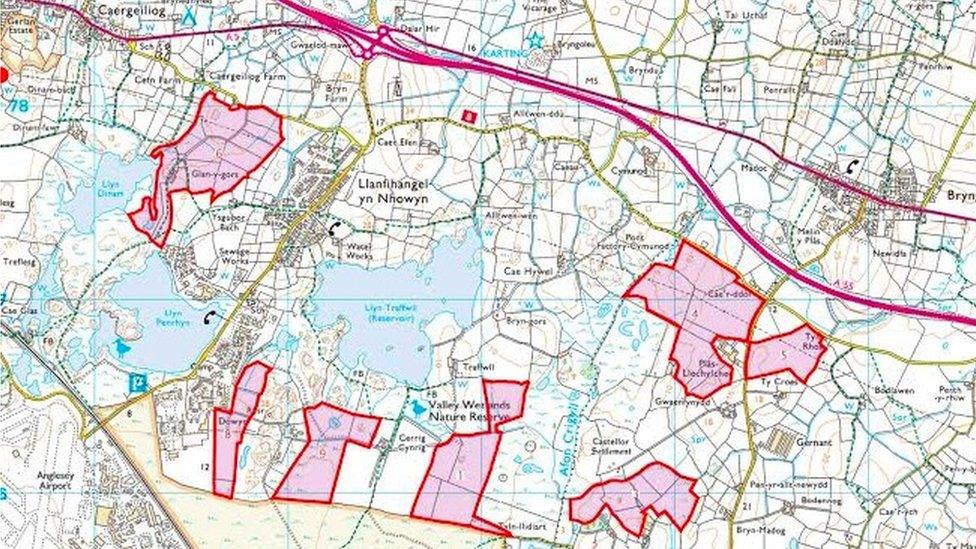
The solar panels would be installed in the seven areas shaded pink
The application covers seven separate parcels of land bordering Bryngwran, Llanfihangel yn Nhowyn and Caergeiliog, although developers say some land will be kept "panel free" for the benefit of local wildlife.
Vaughan Evans from Bryngwran, a member of the Say No To Traffwll Solar Parc group, claimed Brexit uncertainty meant it was "quite crazy" to lose farm land which might be needed for food.
"I'm not against the idea of solar panels at all, but just can't understand why they want to put them here," he told the Local Democracy Reporting Service.
"We are talking about a site covering almost 300 acres of farmland across seven areas, all of which are good quality and support declining bird populations including choughs.
"It will ruin the whole area, which is dependent on tourism, and won't create any jobs locally.
"I can't see any benefits, not to mention the chaos that construction would inevitably bring."
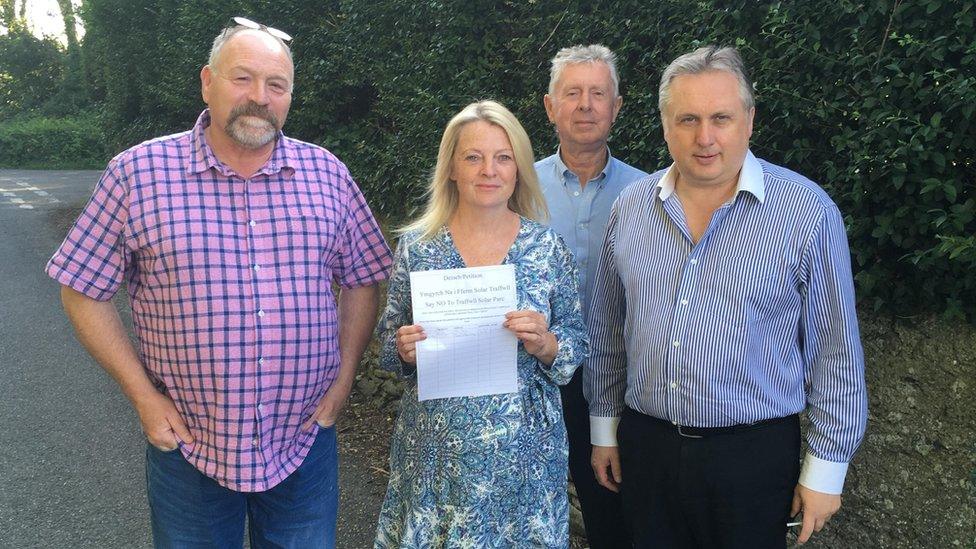
Vaughan Evans, Bernadette Loader, Emlyn Williams and Hywel Hughes are among the scheme's opponents
Anglesey County Council will be consulted as part of the process, as well as other bodies such as Natural Resources Wales and the RSPB.
The developers will be expected to supply information about the visual impact, noise, flood risk and effects on wildlife, biodiversity and the landscape.
- Published14 March 2019
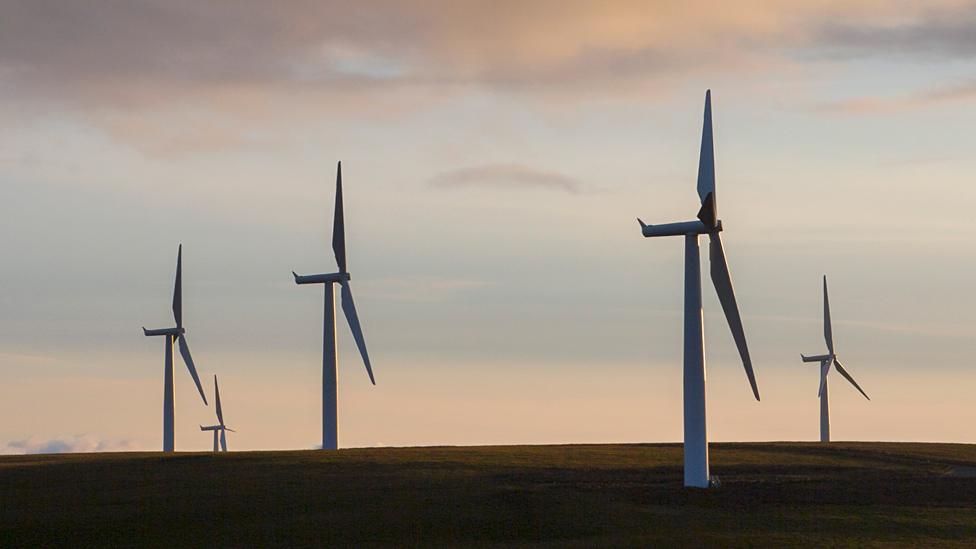
- Published6 December 2017
